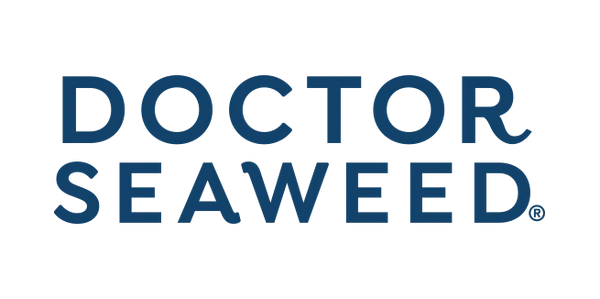This often-overlooked nutrient is vital for our overall health and wellbeing
In recent years, many of us have made the effort to be more mindful of the food we eat. Whether it’s following a plant-based diet or just trying to cut back on high sugar or heavily processed food items, good nutrition is one of the pillars of an overall healthy lifestyle.
However, there are still some aspects of our health that continue to be overlooked, including iodine. As we enter National Nutrition Month, we’re going to take a closer look at the importance of iodine and the ways seaweed can help you achieve your daily intake.
What is National Nutrition Month?

National Nutrition Month is an annual initiative that aims to raise awareness about the importance of being smart with your food choices. The campaign focuses on educating the public in the contents of a balanced diet, as well as helping people develop healthier lifestyles overall. This includes supporting people to make good food choices, rather than simply selecting the easiest option.
The importance of National Nutrition Month should not be underestimated, as a 2017 study found that one in five deaths are the result of an unhealthy diet.[1] By being mindful about our food, we can see positive changes in our health and wellbeing.
Understanding iodine
Our understanding of healthy eating is constantly growing, yet some nutrients still fly under the radar. Iodine is certainly one of these. According to the NHS, adults need 140 micrograms of iodine per day as part of a healthy and balanced diet.[2] Iodine plays a crucial role in the production of thyroid hormones, which are used to regulate the health of our cells and metabolic rate. By ignoring our body’s need for iodine, we put our overall health at risk.
Why is iodine so important?
As well as playing a role in our metabolism, the thyroid hormones produced using iodine also help with proper bone and brain development during pregnancy and infancy. Getting enough iodine is important for all of us, but especially for infants and pregnant women.
If you don’t get enough iodine, your body will struggle to produce a sufficient number of thyroid hormones. This can cause several significant health problems. In pregnant women, severe iodine deficiency can permanently harm the foetus by causing stunted growth, as shown by a study published in the British Medical Journal in 2015.[3] An enlarged thyroid gland is often the first sign of iodine deficiency.
Iodine deficiency continues to be an issue in the UK

Despite being a high-income country, the UK still struggles with iodine deficiency. Evidence suggests that for teenage girls and young women in particular, iodine deficiency is a significant concern. Studies have also shown iodine deficiency to be a concern for pregnant women in the UK too.[4]
Finding plant-based sources of iodine
The main sources of iodine in the standard British diet come from milk and dairy. However, as more and more people switch to plant-based and vegan diets, the opportunities to incorporate iodine in meals is significantly reduced. For an indication of how food and drink buying habits are changing, we need only look at a recent NHS report stating that milk purchases have declined in the UK over the last decade.[5]
It can be difficult to find viable plant sources of iodine, which is why seaweed deserves to play a more prominent role in any plant-based diet.
The importance of seaweed for iodine
Seaweed is the only significant vegan source of iodine. Because it is naturally rich in iodine, seaweed can be used to tackle iodine deficiency as part of a healthy, balanced diet. Independent research into our seaweed has shown that it releases iodine more slowly, with longer retention in the body compared to artificial sources.
Thanks to our use of organic Hebridean seaweed, as well as our key quality control measures, just one 500mg capsule of Doctor Seaweed’s Weed & Wonderful™ organic seaweed contains as much iodine as three whole mackerel. This means our seaweed can contribute to normal metabolism, thyroid health, cognitive function, skin maintenance, nervous system function, and growth in children.
Supplements are an easy way to get your recommended iodine intake every day, with minimal effort.

